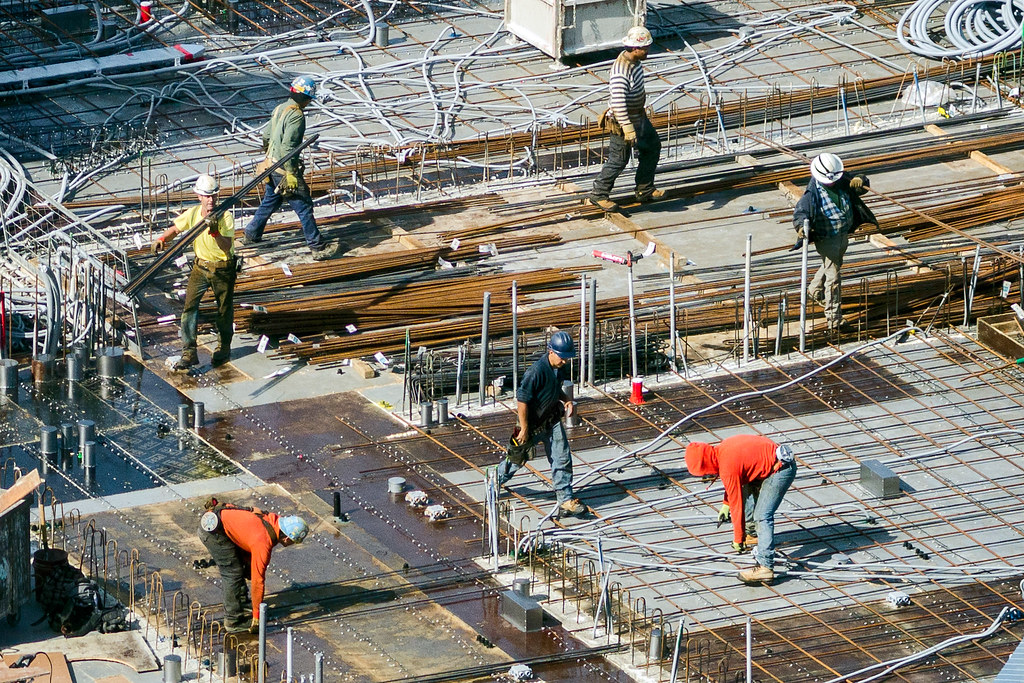
Over 15,000 workers from North America’s largest construction union have gone on strike in Toronto, bringing residential construction to a standstill.
Bargaining units from the Labourers’ International Union of North America (LiUNA) Local 183 representing floor and tile installers, house framers, high-rise construction, and more skilled labour voted to reject proposed contracts and initiate strike action May 1, 2022. All high-rise construction has been shut down while low-rise projects in the shaping or framing stages have been heavily affected.
After two years of pushing through a global pandemic as essential workers, LiUNA is demanding contracts for its members that will keep pace with ever-climbing inflation. Workers from across six sectors are part of the strike and while each has its own additional demands, the root cause is clear.
“Because there’s such a vast number of sectors that we represent it’s hard to pinpoint exactly what the gap is but it is definitely a money issue,” said Jason Ottey, a spokesperson for Local 183. “Unlike in the tech and financial services sector, where there are bonuses that are offered to employees, our members can only rely on the wages that are provided to them through the collective agreement.”
Ontario’s construction industry is held together by over 30 such collective agreements, all of which expired on Apr. 30. Direct employees went to arbitration on Apr. 21 and were allowed a $6.40 per hour raise over the course of three years. As we have written before, binding arbitration is union busting legislation that rips power from the hands of workers and hands it to supposedly neutral lawyers who negotiate contracts in backroom deals. The results are almost universally in favour of the bosses.
Other sectors such as low-rise forming and landscaping have already ratified new deals and gone back to work. LiUNA is calling for the Contractor’s Association to return to the bargaining table to negotiate with the rest.
The International Union of Operating Engineers (IUOE) Local 793 representing crane and heavy equipment operators and other skilled labour also went on strike in Ontario, putting more pressure on the bosses to negotiate.
As representatives of the capitalist class, the Residential Construction Council of Ontario (RESCON) has a different view of the strike. RESCON President Richard Lyall said that “there is no need for work stoppages,” stating, “Construction remains highly paid work, but the recovery of our economy is uncertain due to rising inflation and a looming recession. Material costs have escalated drastically due to supply chain problems and government taxes on housing are at an all-time high, putting pressure on builders.”
While he may not have meant to, Lyall actually provides the logic in favour of work actions. Rising inflation and a looming recession (how astute!) are all the more reason for workers to secure good contracts now while they have the opportunity. At the same time, this strike comes a month before a contentious provincial election in which all major parties have decided the solution to Ontario’s economic and housing woes is more and more residential construction (despite all evidence to the contrary). This gives LiUNA Local 183 significant leverage.
Unfortunately, the Canadian government has been preparing for a situation just like this. The Ontario Labour Relations Act mandates that any work action in the residential construction sector must be resolved in six weeks or a back-to-work order will be enacted and binding arbitration will settle any outstanding issues. All the bosses have to do is sit back and wait. In this industry, union busting has been codified into Canadian law.
The clock is ticking. With less than six weeks counting down to win the much needed wages and benefits they deserve, the workers at LiUNA Local 183 must act quickly and decisively, in order to make it too costly for the bosses to wait them out. Knowing that back-to-work legislation is on the horizon, it will be necessary for the union to prepare for defiance, if the bosses are to take them seriously and the strike is to pose a serious threat. Only with militant organizing, hard picket lines, and the support of their comrades in the labour movement can they achieve this task. Fightback supports this and every fight for the benefit of the working class, a victory for members of Local 183 is a victory for workers across Canada.

